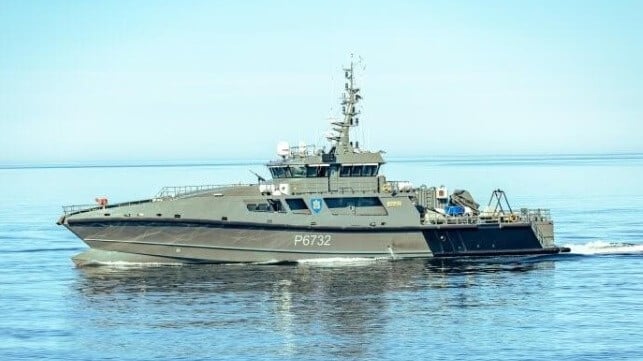Baltic Countries Increase Infrastructure Patrols and Call for NATO Support
Baltic Nations Strengthen Undersea Infrastructure Security

The Baltic region is ramping up efforts to safeguard its critical undersea infrastructure. Countries such as Estonia, Lithuania, Sweden, and Finland are responding to recent incidents that have raised alarms about the security of power and communication cables. The most notable event occurred on Christmas Day, when a vital power cable connecting Finland and Estonia was damaged, disrupting internet connections and raising concerns about potential sabotage. In light of these developments, both the European Union (EU) and NATO have pledged to enhance the protection of critical infrastructure in the region.
Heightened Vigilance in the Baltic Sea
Estonia’s Foreign Minister, Margus Tsahkna, has voiced concerns over the increasing frequency of incidents in the Baltic Sea. He expressed skepticism about the notion that these events are merely accidents or the result of poor seamanship. Recent incidents include the severing of two telecom cables in Swedish waters, which have been linked to a Chinese vessel. Additionally, a Chinese ship was previously suspected of damaging a gas pipeline between Finland and Estonia. The investigation into the Nord Stream pipeline damage from 2022 is still ongoing, with sabotage being a key focus.
In response to these threats, the governments of Finland and Estonia have convened meetings to discuss the situation. Estonia’s Prime Minister, Kristen Michal, emphasized the importance of cooperation between the two nations. She noted that Finland’s recent detention of the tanker Eagle S marked a significant step in holding accountable those responsible for the damage. While investigations are underway, Michal reassured the public that the security of Estonia’s electricity supply and communication services remains intact. The focus now is on increasing the protection of both maritime and land-based infrastructure.
Collaborative Defense Measures
In a proactive move, Estonia’s Minister of Defense, Hanno Pevkur, announced that the Estonian Navy has deployed its patrol ship, Raju, to protect the Estlink 1 cable, a smaller but crucial connection between Estonia and Finland. Major General Andrus Merilo, Commander of the Defense Forces, stated that the military is prepared to repel attacks against Estonia and prevent threats to energy infrastructure using both military and non-military means. This commitment underscores the seriousness with which the Baltic nations are treating the security of their undersea infrastructure.
Viking Line Expands Tallinn Route Cinderella and Gabriella Join Viking XPRS for Summer Sailing
Lithuania has also stepped up its naval surveillance and patrols in the Baltic Sea. The Swedish Coast Guard is collaborating closely with the Swedish Navy and other government agencies to enhance maritime surveillance. Sweden has committed to increasing its presence in the region with both vessels and aircraft. This collective effort comes in response to a statement from the European Commission, which announced plans to strengthen the protection of undersea cables through improved information exchange, detection technologies, and repair capabilities.
Estonia’s Prime Minister Michal has called for NATO reinforcements to act as a deterrent against potential threats. He indicated that Estonia may invoke Article 4 of the NATO Treaty, which allows for mutual support if a member nation feels threatened. Michal emphasized the need for a comprehensive understanding of the threats facing critical infrastructure, both underwater and above water. He acknowledged the challenges of protecting every area at all times but stressed the importance of a proactive and coordinated defense strategy.
As the situation evolves, Finland’s President Alexander Stubb has echoed the call for increased NATO maritime presence in the Baltic Sea. He stated that Finland and Estonia would communicate their desire for a stronger NATO presence to ensure the security of underwater infrastructure. NATO Secretary General Mark Rutte has expressed solidarity with the Baltic nations and confirmed that NATO will enhance its military presence in the region.
